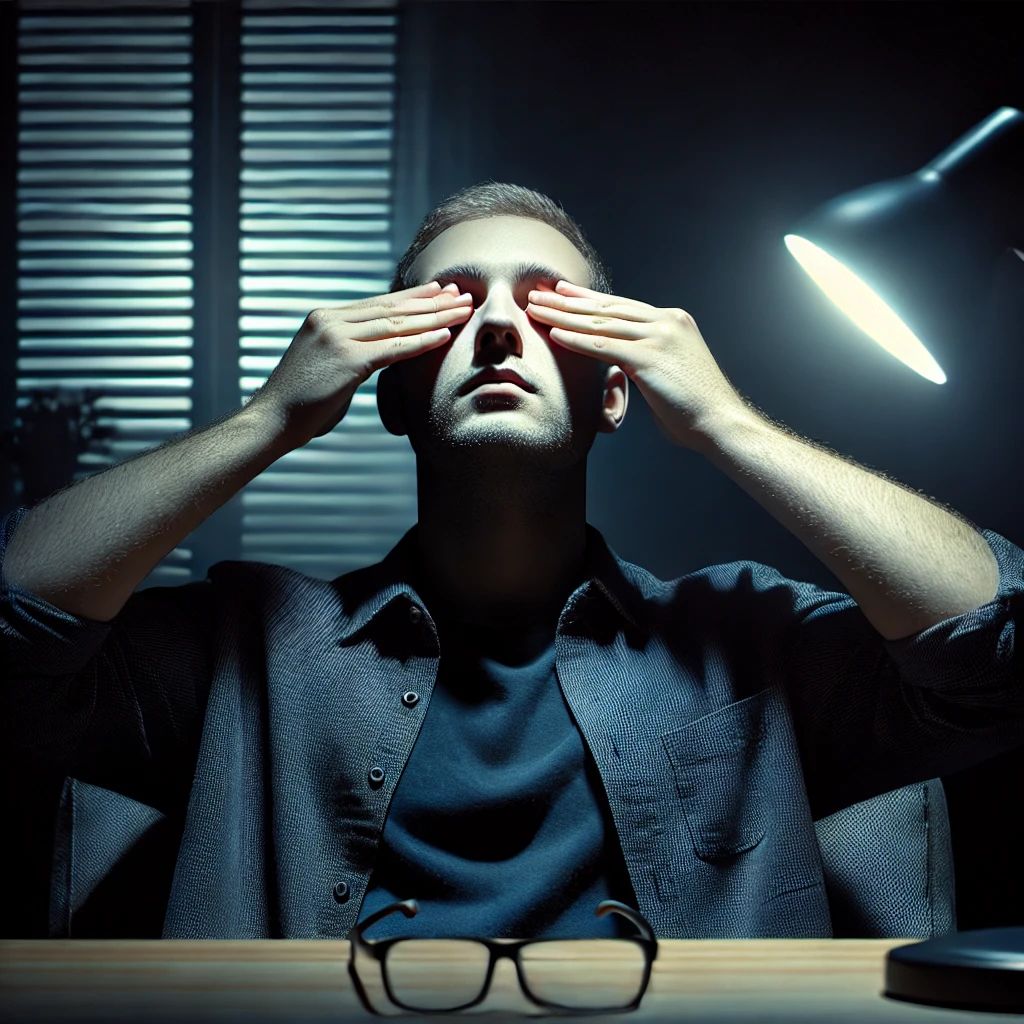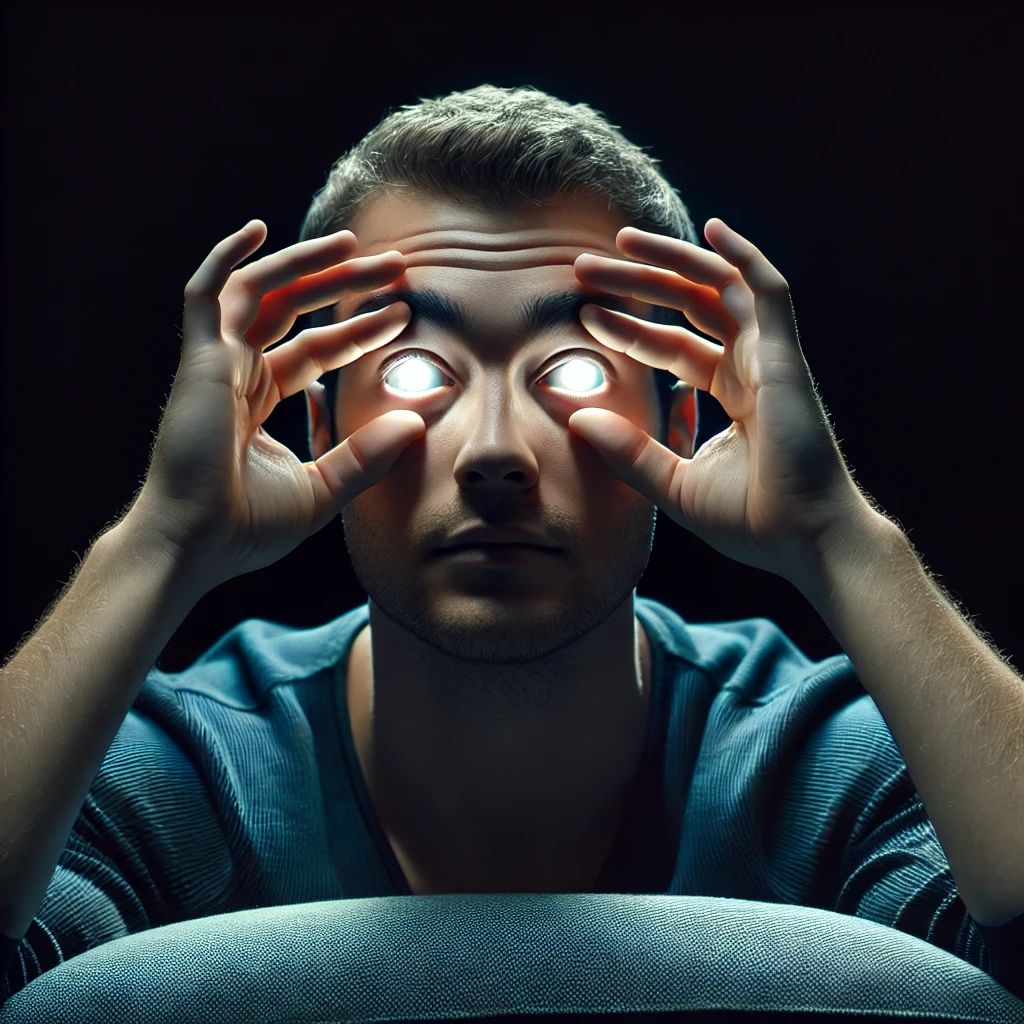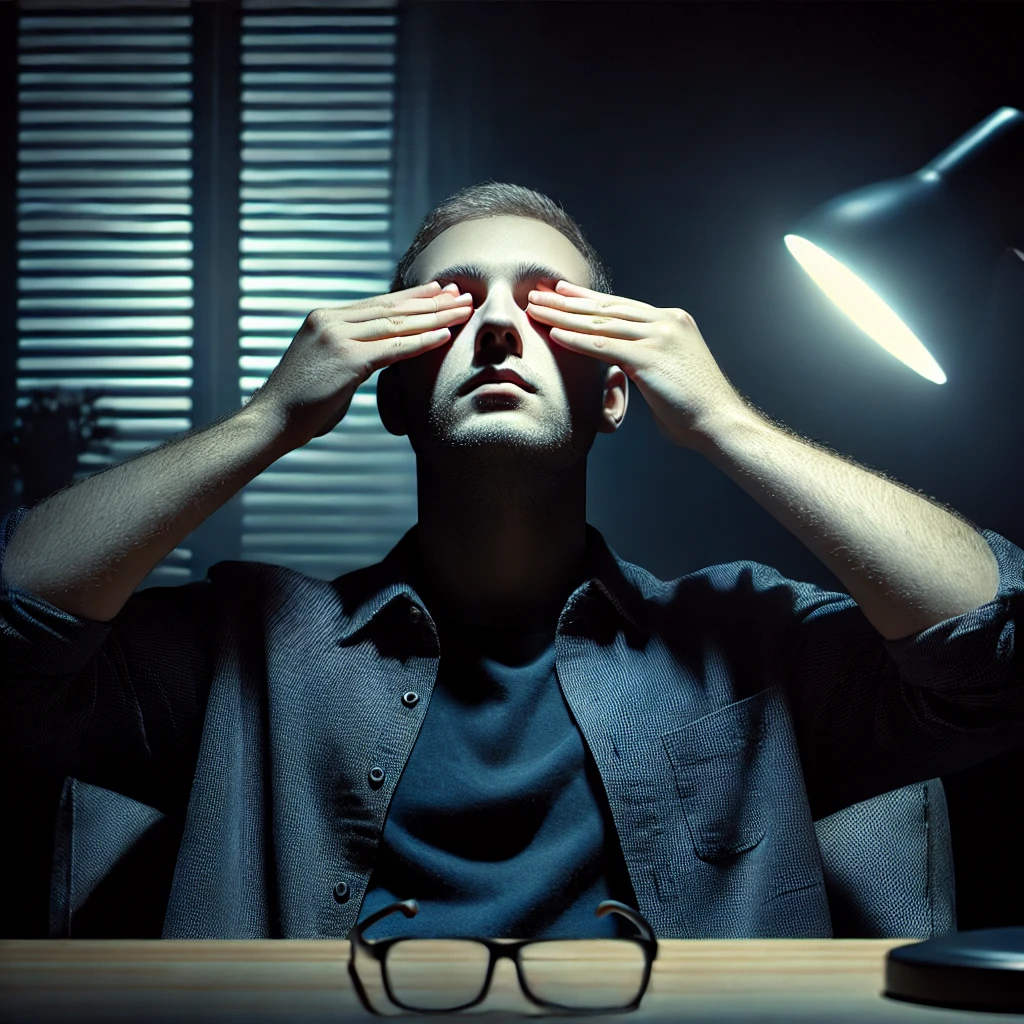The idea that staying in complete darkness can improve vision sounds like something out of ancient traditions or samurai training. Some claim that time spent in darkness stimulates the eyes and makes them more sensitive to light, resulting in better vision. But is this just a myth, or is there any scientific evidence behind it? In this article “Spending Time in Darkness: Can It Really Improve Vision or Is It Just a Myth?”, we’ll explore the truth behind this belief and what science says about it.

Spending Time in Darkness: How Vision Works in Darkness
When we are in the dark, our eyes have to adjust to the new environment. The pupils dilate to allow more light in, and the rods (the photoreceptors in the retina responsible for night vision) become more active, helping us perceive shapes and movement in low light. This is a natural mechanism that helps us see in the dark.
Some studies suggest that exposure to darkness can make our eyes more adaptive to low-light conditions, like night vision. However, does this mean that spending time in darkness can improve vision in daylight or generally enhance eyesight?
Spending Time in Darkness: Scientific Evidence
Research on the effects of darkness on vision is limited, but what is known is that short-term exposure to darkness can improve the eyes’ sensitivity to light. This is part of a natural adaptation process known as dark adaptation. However, this adjustment is temporary—once the eyes return to a well-lit environment, they revert to normal.
Animal Studies: An interesting study conducted with mice at Stanford University showed that long-term exposure to darkness could trigger neuron regeneration in the retina, which improved vision in the animals. These findings opened the door to potential research in humans, but there is no clear evidence yet that the same is true for human vision.
Short-Term Effects: On the other hand, short periods of time spent in darkness, such as a few hours or a night, may enhance your eyes’ sensitivity to low light. This temporary adaptation can make night vision easier, but there is no evidence that it improves vision long-term or increases sharpness in normal lighting conditions.
Myth or Reality?
While some aspects of this belief have a scientific basis, such as short-term dark adaptation, there is no scientific evidence to support the idea that long-term exposure to darkness can permanently improve vision. Our eyes are adaptive to different conditions, but that doesn’t mean that spending time in darkness will make them more effective in normal light settings.
There are also potential risks to spending too much time in complete darkness. Prolonged time without any light source can strain the eyes when they are suddenly exposed to light again, and there may be psychological effects such as disorientation or anxiety.

Are There Better Ways to Improve Vision?
Improving eyesight can be achieved in various ways, but spending time in darkness is not one of the most effective methods. Lifestyle changes such as a balanced diet rich in vitamin A, regular eye exercises, and reducing prolonged exposure to screens are much more effective for long-term eye health.
While spending time in darkness can temporarily improve your eyes’ ability to adapt to low light, there is no evidence that it can permanently improve vision. This is more of a myth than a scientifically proven practice. For maintaining healthy eyesight, it’s far more effective to focus on proper eye care and regular visits to an eye specialist.
More Useful Links:
Does Using Screens Late at Night Really Disrupt Sleep?
Does Fast Food Really Cause Premature Skin Aging?
Meditation and the Brain: Myth or Scientifically Proven Transformation?
Headphones and Hearing Loss: How Dangerous Is It Really?
Do We Need to Exercise Every Day to Stay Healthy? Myth or Reality?
